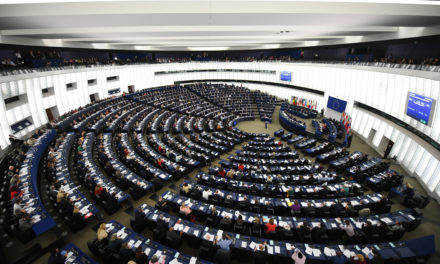The series of global power economic terrorist actions code-named "system change" achieved, with the technique of destroying network connections, that in four or five years the economic performance of the countries of Central Europe fell to a global conflagration. The big question is whether there is a way out at all. Written by László Bogár.
The concept of recession means a decline, a setback, in economic terminology, it appears when economic activity in a country or region begins to decrease permanently. There is nothing surprising in the fact that economic growth has at least slowed down in all regions of the world (even the perennial growth champion China significantly), and even in more and more countries, including Hungary, economic performance has begun to decline.
It would be strange if this had not happened, because in 2022 the ruling structures of the global power economy destroyed the system that they had built for their own benefit during the previous six decades.
There is evidence that if this happens to a super-complex system, its output performance will automatically and significantly drop, because it will largely lose the synergy that the complexity made possible for it. Since a super-complex system is based on network organization, and thus a large part of the network's rich connection system is lost, the capacity of the system is reduced even more than the extent of the destruction, because the inverse of synergy is in operation.
The series of global power-economy terrorist actions codenamed "system change" achieved, with the same technique of destroying network connections, that in four or five years the economic performance of the countries of Central Europe fell, comparable to the devastation of World War II. And in fact, a world war is still going on now, because every inhabitant of the world feels its devastating consequences, so by definition, this war is "world".
The twist of the Hungarian language is that "fishing in confusion" is based on exactly this connection, the artificially induced, as we say, "made" world war makes everything uncertain and unpredictable, so it is much easier to catch fish that have lost their way in muddy water. (Fishing for fools, as Akerlof and Schiller, the two Nobel prize-winning American economists, thrust it into our faces with cynical wit in their book above.) And in this global system, a "locality" is all the more vulnerable the more it depends on the global power economy from its superstructures.
The bad news is that, despite all the efforts of the last decade or so, Hungary is still very vulnerable to this system.
This is indicated with poignant precision by the fact that our exports and imports are practically the same as our entire national product, behind which lies the simple connection that the economic actors capable of global exports are essentially, without exception, transnational companies that are foreign-owned and primarily produce for export. .
Which in itself would not necessarily be a big problem, at least not in calm and consolidated times, but when the global system is hit by a brutal blow like the one that took place during the last year and a half, then this vulnerability shows itself with dramatic consequences.
By deliberately destroying the system, the ruling actors of the global power economy wanted to achieve just that, and for now it seems that they are basically successful in fulfilling their destructive intentions. All of this essentially works as a global resource pump together with artificially "produced" inflation.
During the past more than a century, we have repeatedly reached half of the per capita income level of the richest Western European countries of all time, but after the period of growth, in every case, without exception, the national income based on the real performance of Hungarian society was "sucked" from us.
All of this is described with dramatic precision by the evolution of real wages over the last hundred and ten years. In 1913, we were closer to the richest Western European countries at the time than we are today.
But the first "done" World War and the even more brutally "done" Trianon pushed us to incredible depths. From where, almost miraculously, despite the world crisis, it managed to break out with a shocking force in 1938. In 1960, despite the false "victory reports" of the 1950s, the real wages per capita were essentially at the level of 1938, that is, after another twenty-two years of stagnation, a new upswing begins, resulting in an increase of more than sixty percent until 1978.
But then the terrorist action under the cover of regime change begins, which was directed by the local network of agents of the global SZDSZ during the 1980s, "socialism" here or there. As a "result" of this comes another quarter of a century of stagnation, so in 2003 the real wage per capita was essentially at the level of 1978. Then during the next twenty years, despite the destruction between 2002 and 2010, a sixty percent increase takes place again.
But now first the world war caused by Covid and now the world war disguised as the Russian-Ukrainian conflict, inflation and recession would push us back into permanent stagnation again.
The big question is what to do. Is there, if at all, a way out of this regularly recurring trap. We should believe that it is, but only if we can keep the results of the era of our growth "within" the country. So far, only the countries of East Asia have been able to do this, so we should find the basic pattern in that region, but in such a way as to adapt it to the spiritual, moral, and spiritual patterns of the human community called the Hungarian nation. Understanding the historical message of August 20 may help us to finally find a solution.













